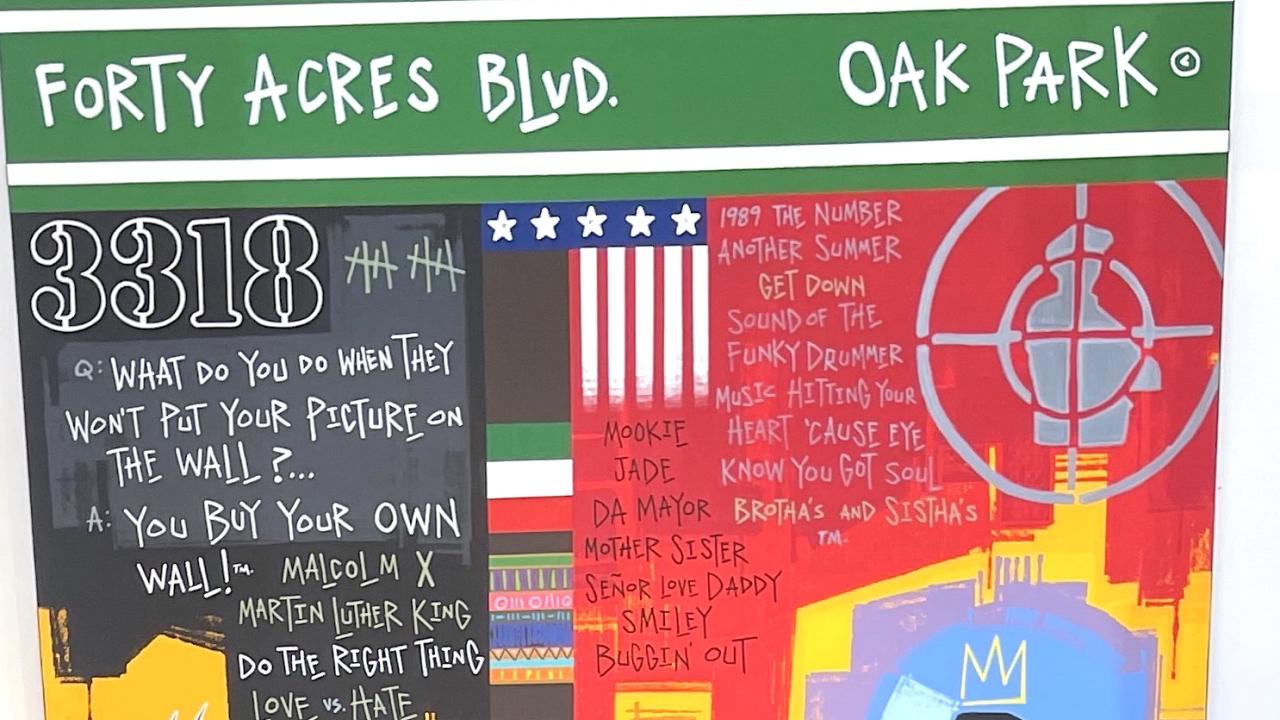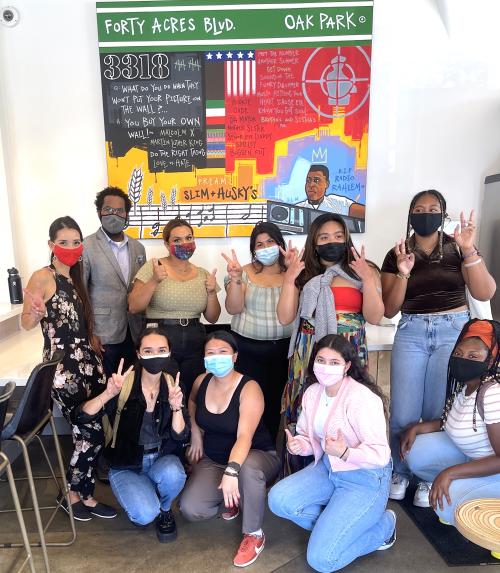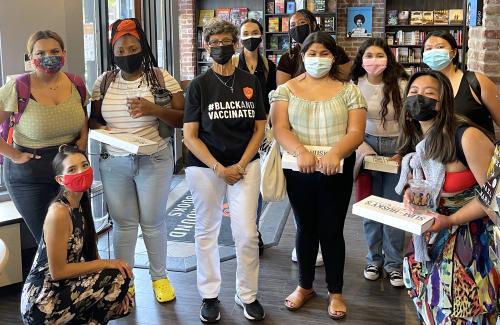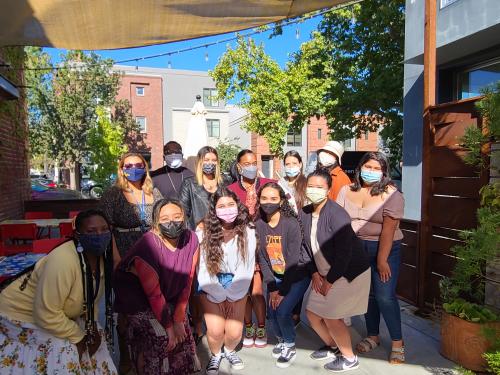
Transformative Justice Studies Takes Off in Oak Park
After launching remotely during the pandemic, Quarter at Aggie Square’s immersive learning experiences are meeting in Sacramento this fall. Transformative Justice Studies in Sacramento and Biomedical Engineering at the Health Campus are taking full advantage of the opportunity to meet in person. "The programs were immersive from the first day,” said program coordinator Angela Taylor. “It’s exactly what we were hoping for.”
Oak Park as Living Classroom for Transformative Justice

Transformative Justice Studies brings students to Oak Park, the Sacramento neighborhood bordering Aggie Square and the health campus, to engage with and learn from the community.
Oak Park’s businesses, schools, and culture offer a living classroom to study transformative justice through the five pedagogical stances which form the program’s theoretical lens: history matters; race matters; justice matters; language matters; and futures matter. The stances were identified in Maisha Winn's 2018 book, Justice on Both Sides: Transforming Education Through Restorative Justice.
One of Sacramento’s oldest neighborhoods, Oak Park has faced redlining, overpolicing, racism in the public school system, and now gentrification. At the same time, it has been a center of cultural investment--from the Afro-centric schools created in the 1970s to the St. HOPE 40 Acre complex in the 2000s to a growing number of Black-owned, community-focused businesses opening in recent years. Read more about Oak Park's history in this study by program faculty Torry and Maisha Winn with Vajra Watson.
Students are meeting with community leaders and exploring how businesses dedicated to building and serving communities can make change. AAS 130: Education in the African American Community kicked off the quarter with lunch at Slim & Husky’s and a visit to Underground Books, both Black-owned businesses committed to community development.
Empowering Communities through Pizza
Slim & Husky’s Pizza Beeria is on a mission to empower communities using pizza as their vehicle to engage. The Nashville-based “hip hop-inspired spot,” which “aims to invigorate less touched areas of the community through employment opportunities and accessible dining,” chose Oak Park for their first California location because of its similarity to North Nashville. Restaurant cofounder Clint Gray said in the Nashville Business Journal that while Oak Park is facing the early stages of gentrification, it is “home to a rich African-American culture” that resonates with their origins and purpose.
Books and Community

Mother Rose, owner-operator of Underground Books and the unofficial matriarch of Oak Park, welcomed the students to the neighborhood’s literary hub. Preserving the neighborhood's Black culture is an important part of the shop's mission. In addition to offering works by African American authors -- from children’s books to volumes on politics, history, culture, and social justice -- the bookstore hosts readings, community activities, and pop-up events. Underground Books was founded in 2003, a quarter-century after Oak Park’s public library was closed, as part of the 40 Acres complex that also includes the historic Guild Theatre.
This is exactly the vision we had ... for Quarter at Aggie Square: Students, scholars, educators, and activists all coming together in this remarkable neighborhood.
“Sacramento Futures” with TJE’s Practitioners-in-Residence

Maisha Winn’s class, EDU 150: Transformative Justice Studies in Sacramento, also held its first meeting in Oak Park. A community breakfast dedicated to the theme of "Sacramento Futures" brought the cohort together with UC Davis’ Transformative Justice in Education Center’s 20-21 practitioners in residence: Oak Park community activist-entrepreneurs Roshaun and Maritza Davis, Oak Ridge Elementary’s principal Daniel Rolleri and vice principal Tiffany Wilson, and Latrice Madkins, B Street Theater’s first ever Equity, Diversity, and Community Inclusion Director. They will be participating in classes throughout the quarter.
“This is exactly the vision we had for Transformative Justice Studies and in fact all of Quarter at Aggie Square," said Matt Traxler, associate vice provost for academic planning. "Students, scholars, educators, and activists all coming together in this remarkable neighborhood.”
Future Offerings
Another new offering, Immigrants, Refugees, and Human Rights, launches this winter, while Spring quarter will see the return of Multilingual Education for California. The following academic year will introduce courses in Health Care Politics and Policy and Plants, People, and the Planet, as well as a second run of Advancing Health Care Equity. New proposals are welcomed, and are considered throughout the year. Information on how to apply is available on the Quarter at Aggie Square website.
